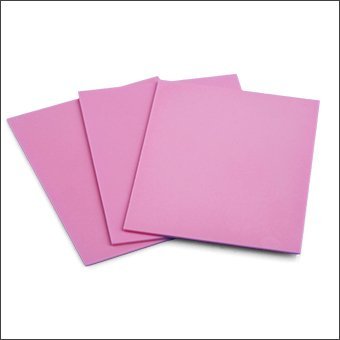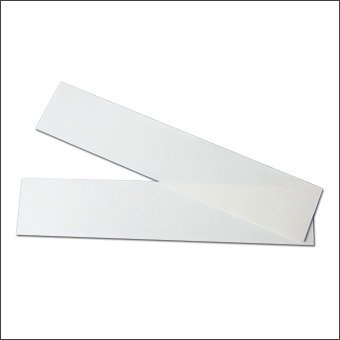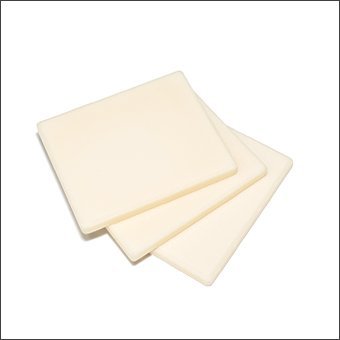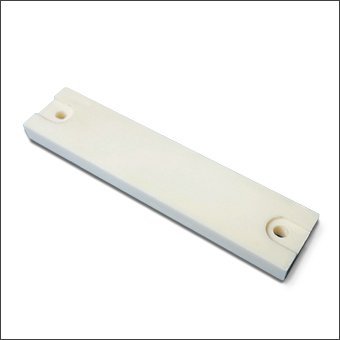Professional China Alumina Plates Manufacturer
Jinghui ceramic has focused on high alumina plates in the past decades. We have long served customers in electronics, energy, medical devices, etc., and also provide customized solutions for semiconductor manufacturers. We aim to make every ceramic plate a reliable cornerstone of your equipment.
We can produce a wide range of grades of alumina plates from 85% to 99.8%; All ceramic materials we have been using were carefully selected and strictly inspected during the incoming process to ensure performance stability. To meet diverse specific needs, aluminum oxide ceramic plates can be shaped in-house by dry pressing, isostatic pressing, slip casting, and tape casting from small-part to big-size in different thicknesses, as well as bespoke configurations. We are also equipped with secondary processing lines, including precision grinding, CNC machining, and polishing. All these capabilities lead us to obtain much more cost advantage.
As an ISO9001:2005 quality management system manufacturer, quality control exists everywhere, from incoming material to ceramic body forming, sintering, and post-processing, as well as among all staff in the organization. Every JingHui person devotes themselves to zero-defect delivery.
Choosing us is not only choosing an alumina plate but also choosing a long-term precision manufacturing partner that will give you peace of mind. Contact us today for your optimization solution.
By Features
To match the wide range of uses of alumina plates as well as expand, they each have many characteristics in practical applications.
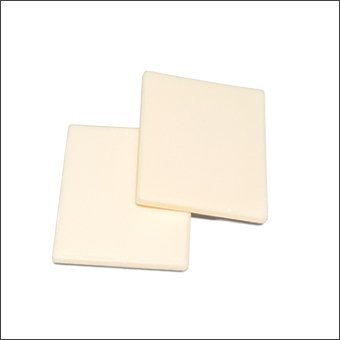
The square and rectangular are the most universal shapes of alumina plate, the width, length, and thickness can be tailored
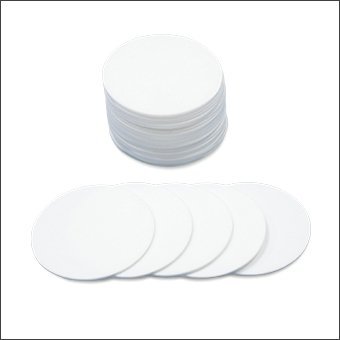
An alumina round plate can be called an Al2O3 disc, which is always used as an electrical insulator, a support part.
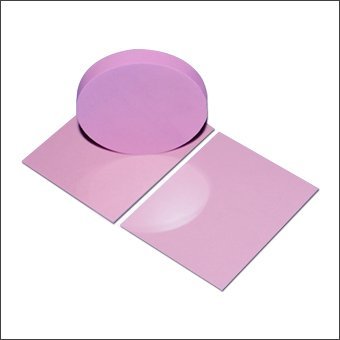
The roughness of the polished alumina plate can be Ra0.4, which offers better flatness and dielectric performance
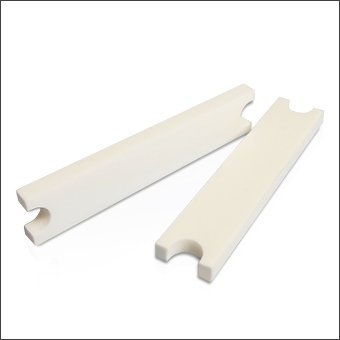
Given that high-purity alumina has superb hardness and wear resistance, it’s often used for making lining tiles
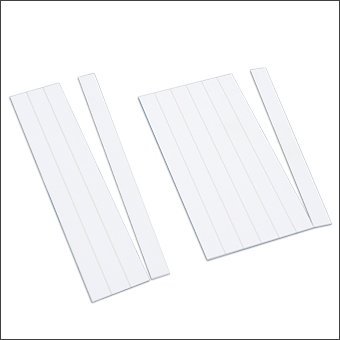
When the thickness of the ceramic sheet is lower than 1.2mm, it’s easier to obtain a ceramic strip by laser scribing
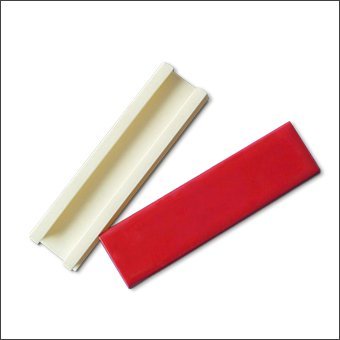
Glazing on the ceramic surface not only enhances the mechanical strength but also protects it from contamination
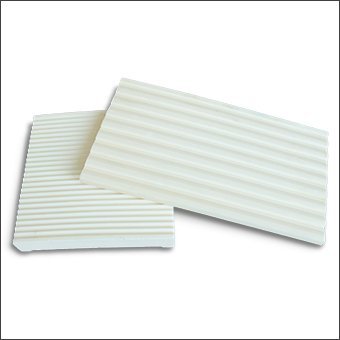
These kinds of alumina plates are always used as a ceramic sintering setter because of the precise V-groove design
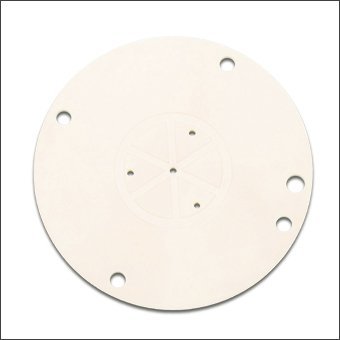
When tight dimensional tolerances are must, so that the sizes of the alumina plates are essential to be machined
By Materials
The alumina in the alumina plate has different purities, and the corresponding prices are somewhat different. We can customize alumina plates with different compositions according to your requirements.
-
The ceramic plates in 94.4% alumina exhibit a pink or red color because of the chromium element additive
-
96% al2o3 is a well-balanced ceramic material in the family, it’s widely utilized for making sheets and substrates
-
99% alumina plates are used in scenarios with much more stringent requirements than 95% alumina ones
-
99.5% alumina plates will be the ideal choice for ultra-high insulation, extreme high-temp resistance conditions
Overview of the Applications of Alumina Plates
Alumina plates are most widely used in modern industries as high-performance structural, functional, or mechanical parts due to their high-temperature resistance, mechanical strength, chemical inertness, special optical properties, and relatively low cost in comparison with other technical ceramic materials. You can learn about the classifications and applications of high alumina plates in different fields from the following articles.
- The alumina grade is over 99.9% purity
● Biological ceramics: The alumina ceramic plate can be used as a wear-resistant coating for hip joint balls or acetabular cups.
● Optics field: The transparent alumina plate can be used in a high-pressure sodium lamp tube, a light transmittance is up to 95%.
● Laser window and mirror: 99.99% alumina sheet can be used in CO₂laser infrared transmission window and as a substrate in high-power laser mirror - The content of alumina ranges from 99.5% to 99.8%
● Precision electronics: Used as injector tubes, gas nozzles, and chamber liners inside etching equipment
● Chemical and anti-corrosion equipment: Used as pump seal plates in strong acids, alkali, and erosion conditions.
● Precision Machinery: Used as cutting tools and high-speed spindles for precision machinery
● Semiconductor industry: alumina Al2O3 plates are used as an electrostatic chuck (ESC) - The content of alumina is between 99% and 99.5%
● High-temperature industry: Used as the heat shield of vacuum sintering furnaces and single-crystal furnaces,
● 5G communication: Used as an insulating support part for RF communication devices.
● Chemical and anti-corrosion equipment: Reactor lining
● Energy and environmental technology: Solid oxide fuel cell (SOFC) connection plate for Fuel cell module - Alumina purity from 95% to 99%
● General industries: worked as a ceramic plate setter and slide push board in high-temp furnaces
● Corrosion-resistant equipment: Used as acid-resistant valves, pump impellers, and sealing rings in strong corrosive environments.
● Wear-resistant industries: Used as grinding media and grinding liners inside ball grinders, and also often used ceramic guides for threads, wires, fibers, and cables.
● Electrical & electronics: Used as high voltage ceramic insulators and thick film substrates for automobile sensors.
- Alumina purity from 90% to 95%
● Environmental protection field: worked as a porous ceramic filter for industrial wastewater treatment or high-temperature flue gas dust removal
● Environmental protection field: worked as a porous ceramic filter for industrial wastewater treatment or high-temperature flue gas dust removal
● Vacuum electron tube: Worked as an insulation support for the X-ray tube and magnetron tube
● Armor: Worked as a bulletproof plate and armor for personnel and vehicles because of its superb hardness
The core value of the high-purity aluminum plate is that it can still retain its high mechanical strength, high insulation, and good optical properties in rigorous environments such as extremely high temperatures, strong corrosion, high frequency, and high voltage. Therefore, it can significantly improve the accuracy, performance, and reliability of semiconductors, electronics, laser technology, wear-resistant equipment, and high-end machinery manufacturing equipment.
The maximum temperature that alumina (Al2O3) ceramic plates can withstand depends on their purity, microstructure, and working atmosphere. For example:
96% alumina plate
In the air: The max. Working temp is from 1300℃ to 1500℃
In the inert: The max. Working temp is from 1400℃ to 1600℃
Plate with purity higher than 99% alumina
In the air: The max. Working temp is from 1700℃ to 1800℃
In the inert: The max. Working temp is from 1800℃ to 1900℃
For over 99.5% purity of alumina sheet, the long-term working temperature can be up to 2000℃ in an inert atmosphere.
We can offer diverse custom sizes and shapes through different ceramic shaping processes with additional machining.
The alumina purity for these plates ranges from 85% to 99.8%. We can customize the formula to cater to different properties per customers’ specifications.
The manufacturing process of alumina ceramic plates is significantly different from daily ceramic ones. The main production flow charts are as follows:
- High-purity alumina powder and additive selection
- Mixing and milling for ceramic compound
- Shaping, primarily including dry pressing, Isostatic pressing, slip casting, tape casting, and hot pressing
- Binder removal: low-temperature sintering ( from 200℃to 900 ℃) removes the added organic binders and plasticizers
- High-temperature sintering: it’s up to 1600℃ to 1800℃
- Post-processing: mainly including lapping, polishing, fine grinding, CNC machining, and metalizing.
After these complex industrial processes above, then you can obtain finished aluminum oxide ceramic plates.
The major characteristics of high alumina plates include the following:
※ Superb hardness and abrasive resistance, the Vickers hardness to be 15-20 GPa
※ High-temperature resistance, the melting point to be 2050℃
※ Excellent chemical stability, it’s suitable for use in strong acids, alkali
※ Excellent electrical insulation attributes, it’s fit for superb high-voltage, high-current conditions
※ High mechanical strength and rigidity, it’s up to 300-550 MPa for 99% alumina
※ Bioinertness and medical compatibility: High-purity alumina is non-toxic, non-magnetic, and has good compatibility with the human body
No, it’s an ideal electrical ceramic insulator in high-temp, high moisture and corrosive applications.
In general, high-purity alumina has excellent mechanical strength, which is mainly reflected in the following three mechanical indicators:
※ Flexural Strength: the typical value is from 300~550 MPa
※ Compressive Strength: the typical value is from 2000~4000 MPa
※ Elastic Modulus: the typical value is from 300~400 MPa
Al2O3 plates show higher strength accordingly as the purity of the alumina increases. Besides, the mechanical strength will be affected by manufacturing technologies and secondary processing.
Alumina plates are compatible with stainless steel and can be used safely in most industrial scenarios. The main risks are thermal stress or mechanical wear at the physical level, rather than chemical reactions. Unless under extremely rare extreme conditions, the aluminum in the alumina ceramic plate will wet with molten stainless steel.




